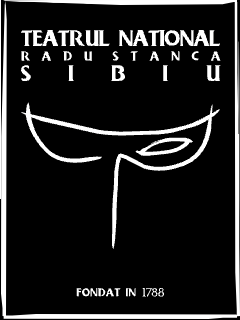It is hard to find such less-used themes in late theatre than faith, spirit of sacrifice, (self) over-taking human limits. Most actual texts excessively approach the man who complies in his own intellectual and moral decay; we are no more interested in theatre, in individualities that aspire to something, to ideals. We are rather interested in identifying our incapacities with characters squashed by their own life that with a disgusting pleasure in pain, describe their prolix decays.
I know I sound pathetic, I know I am neither trendy nor up-to-date, but a tragic subject demands an approach in which one takes the risk of being ridiculous or obsolete, without hiding behind parody, regardless of its intelligence. I find this the most honest way. As a matter of fact, I cannot say more than, that at this moment in my life, I felt the urge to speak about a man of generous excesses – not by chance a woman and not by chance mentally handicapped, about how important knowing oneself is and how much consequent courage it asserts (without being conditioned by the intellect), about love that is not true unless it offers everything, about the wonders that surround us and which, with an exuberant foolishness, we force ourselves not to see, blinded by elation and the rush for the illusionism of the cheap show that we allow ourselves to be dominated by.
Nowadays, we lack the spiritual marks with such atrocity, that we expressed a non-represent impulse offering this performance to the audience, as an adjuvant of love – so absent in our soul’s diet. (Radu-Alexandru Nica)






.jpg?locale=en)


